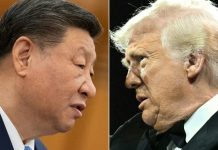Will peace return to South Asia with India-Pakistan Peace Process? This week witnessed two historical summits in Asia; one between North Korea and South Korea, and the other between India and China. The more significant of the two was the summit between the two Koreas, that has been in a permanent state of war, disrupting global peace, since 1950. With the step to ‘denuclearise’, this could be the reformation in global peace? Will India-China and India-Pakistan Peace Process be very far from reality?
Delhi Looking to Improve India-China Ties while Sidelining Dalai Lama & the Tibetan Cause
Besides, North and South Korea, India and China, have also been in a state of conflict for years, and now measures are being taken to work out the differences and contribute to global peace. Thus, observers believe that the India-China summit has the potential to not just impact global peace but also pave a way for better understanding and mutual trust between the two nations, affecting the entire world.
Does Asia Lack the Unity to Bring About Global Peace?
Both summits hold great potential for global peace but the question that arises is why ‘Asian Unity’ has been so fragile, whereas other unions like African Union, NAFTA and the EU have been progressive? The issue is that although Asians have a deep sense of intellect and traditional values; the thoughts tend to lean more towards communalism and nationalism, rather than a pan-Asianism thought.
Will India-Pakistan Border Dispute and the Kashmir Crisis Lead to a Nuclear War?
For China, Asian Unity is more of a functional objective being strengthened by initiatives such as the BRI. However, this remains a physical concept but at the core thought of it, the idea of being ‘above all’ still rules the thought process. This is also called a parochial construct; a concept of world order with China being on the top of it. This notion of being ‘on top’ is evident in the South China Sea too, where the Chinese are ensuring no other nation can interfere. Amidst such a thought process and ideas of being ‘No. 1’ can unity and global peace really harbour?
Global Peace By Asia and the Western Influence
The irony is that while both summits may have been led with the idea of global peace, the very foundation of both the summits is deep-rooted Western heritage. In fact, the western ideology is much deep-rooted in Asia than in the West itself. For example, the India-China border dispute although is based on national security, the concept of borders and sovereignty comes from the West. About a 100 years ago, free movement between India-China was the norm, only changed by the Western influences. In the same way concepts of a Marxist- Leninist state in China and N. Korea, the liberal and democratic republic beliefs in India and South Korea are all concepts that have been adopted and influenced from the West.
Have India-China Relations Improved or Worsened under PM Modi?
India-Pakistan Peace Process
India and Pakistan have started to revive Track II diplomacy with aim of re-starting the bilateral relations, according to the Indian media. An article published on Times of India confirmed that the Track II initiative (Neemrana Dialogue), got a new start after Indian delegation held meetings with Pakistani counterparts in Islamabad.
CPEC Holds Potential to Build an Economic Bridge for Better India-Pakistan Ties: China
The Pakistani delegation was headed by former foreign secretary Inamul Haque while the Indian delegation was headed Vivek Katju (former MEA of the Ministry of External Affairs). The delegates agreed that New Delhi will wait to see the outcome of the upcoming elections in Pakistan before negotiating the India-Pakistan Peace Process.
Even if India-China or India-Pakistan aim for global peace and hold summits, trying to ‘be similar’ to the west, the idea may never work as the foundation of the structures are completely different. The ‘Asian Unity’ and India-China or India-Pakistan Peace Process would be very far from reality.




